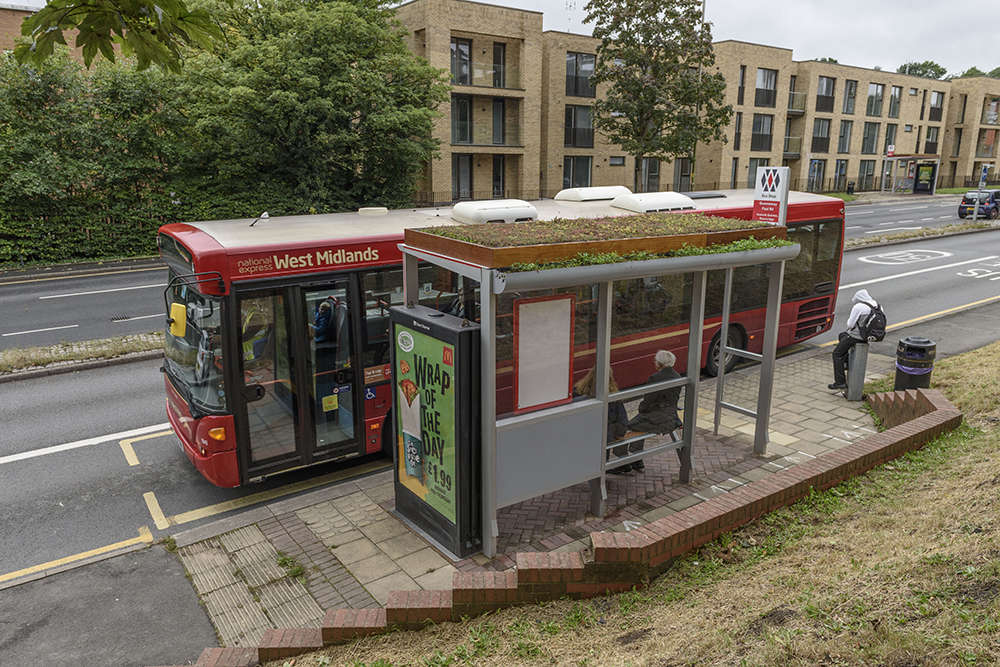
Green bus shelters which can improve air quality, generate their own power and even attract bees are being trialled in Halesowen.
Transport for West Midlands has worked with the Halesowen Business Improvement District and Halesowen in Bloom to bring some plant-topped bus shelters to improve the town centre environment.
The shelters are made from recycled materials and their roofs include plants designed to reduce carbon in the environment as well as filters to catch fine particles and improve air quality. Wild flowers, which attract bees and other pollinators, will grow from the eaves and roof edges and appear during the Spring, turning the bus stops to buzz stops.
Further to this are solar panels which will not only generate power for the display screens and lights but also allow people to charge their mobile phones for free while waiting for the bus. TfWM teamed up with manufacturer Bus Shelters Ltd to develop the new shelters and installed two prototypes in Queensway.
If the trial proves successful more of the environmentally friendly stops could be installed as TfWM replaces and renews its 5,000 bus shelters across the region – playing a part in helping the region achieve its net-zero carbon targets. Cllr Kath Hartley, who chairs TfWM’s Transport Delivery Committee, said:
“As we face this climate emergency it is important, we look at new ways of improving our environment. Not only can it make a difference to the air we breathe but offers real convenience for bus passengers with the offer of free solar-powered phone charging while they wait – a great innovation. I look forward to seeing more of these shelters on our streets in future.”
Vicky Rogers of Halesowen BID added: “This is a fantastic example of innovative urban greening as well as a contribution to biodiversity, climate resilience, carbon absorption and the reduction of airborne pollutants.
"The mix of wildflowers and Sedum plants will attract pollinating insects, of which we have sadly seen the numbers decline over the years. Halesowen BID continues to look at further urban greening projects and creating healthy green spaces or perhaps even walls.
"We have all recognised the importance of health and wellbeing throughout the pandemic and this is certainly a positive step towards making our town greener.”
The WMCA has placed the climate change challenge at the centre of plans for the future of transport in the region as part of the wider plans for a net-zero carbon region by 2041 as well as contributing to the UK’s ‘Race to Net Zero’ efforts in the lead-up to its hosting of COP26 in November.
Last month the WMCA submitted three bids to Government for transport funding which included measures such as more hydrogen powered buses, more electric vehicle charging points, more investment in cycling and walking and an expansion of our tram, rail and bus networks and services.














Comments
Add a comment